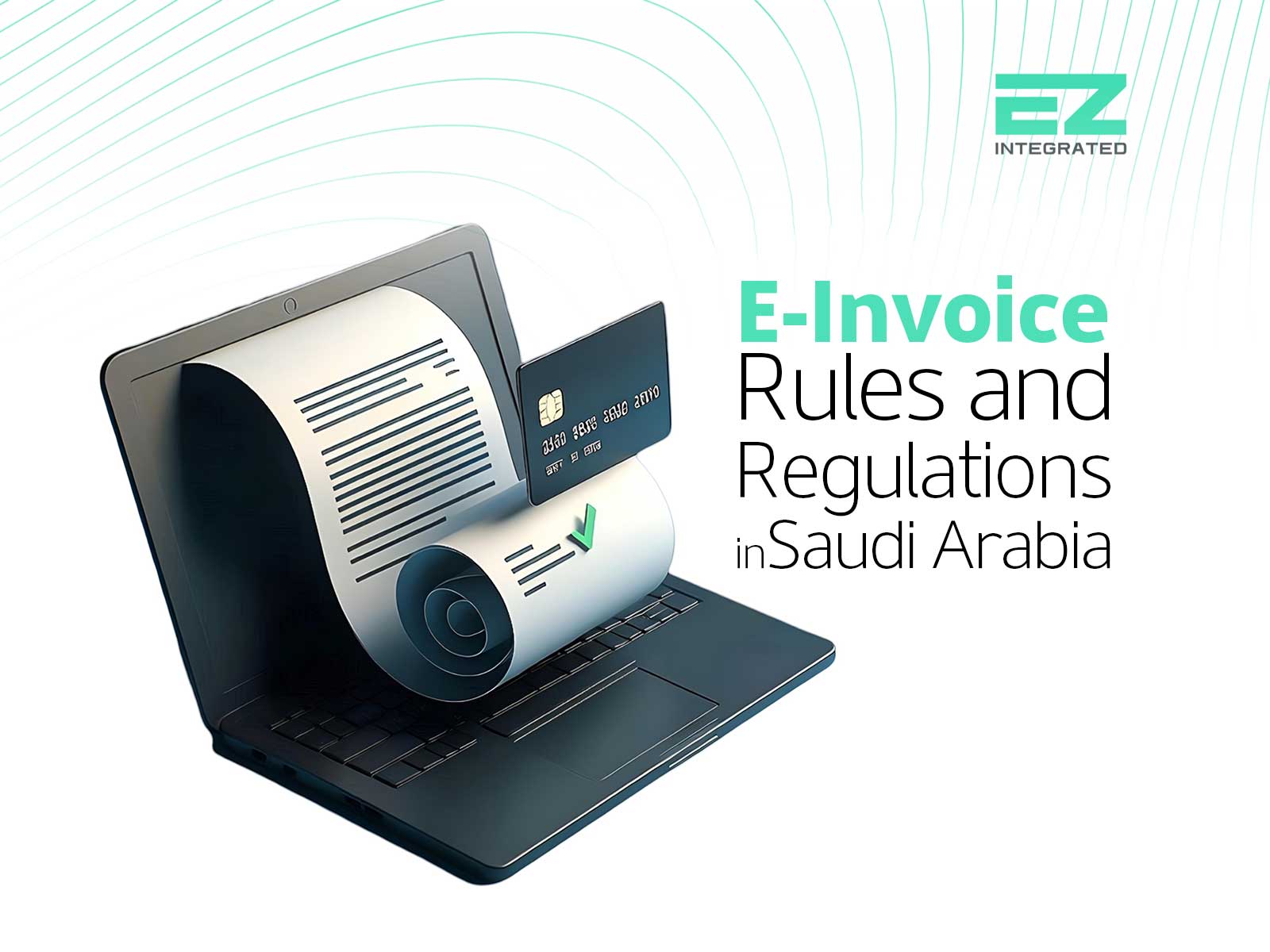Understanding e invoice rules and regulations is no longer optional for businesses in Saudi Arabia. With the nation’s rapid digital transformation, every company must ask: are we truly prepared?
In this article, we provide a practical guide to help you navigate e invoice rules and regulations in Saudi Arabia. From legal phases to technical requirements, everything is simplified for businesses of all sizes.
Legal Requirements of e Invoice Rules and Regulations
The Zakat, Tax and Customs Authority has introduced e invoicing in two major phases:
1. Generation Phase (Effective from December 4, 2021)
Businesses must issue electronic invoices instead of paper ones. These invoices should include seller and buyer details, tax number, and must be securely stored.
2. Integration Phase (Effective from January 1, 2023)
Companies are required to link their accounting systems with the FATOORA platform. Invoices must be sent in real-time using approved formats such as XML or PDF/A-3 with embedded XML.
This phase is being rolled out in waves based on revenue size, ending with small businesses by the end of 2025. Non-compliance may result in fines up to 50,000 SAR.
Also read: Important Dates for e Invoicing in KSA in 2025
Tax Invoice vs. Simplified Invoice: What’s the Difference?
When discussing e invoice rules and regulations, understanding the invoice types is crucial.
– Standard Tax Invoice
Used for B2B or B2G transactions.
Example: Issuing an invoice of 2,000 SAR or more to another company requires a full tax invoice with detailed information.
– Simplified Invoice
Used for B2C transactions under 1,000 SAR.
Example: A 500 SAR purchase from your online store can be invoiced with minimal details and a QR code for verification.
Also read: Key Differences Between Tax and Simplified Tax Invoices
Technical Requirements in e Invoice Rules and Regulations
Here are the essential technical features every invoice must follow:
- Digital Signature: Ensures invoice integrity and authenticity.
- QR Code: Mandatory for simplified invoices and all invoices in phase two.
- XML or PDF/A-3 Format: Required format for submission to the authority.
- API Integration: Enables seamless communication between accounting systems and the FATOORA platform.
- Secure Archiving: Invoices must be stored electronically for at least seven years.
Do e Invoice Rules and Regulations Vary by Company Size or Sector?
Yes, implementation differs depending on company structure and industry:
- By Company Size
- Large companies: Complied first in early 2023.
- Medium companies: Phased in during 2024.
- Small businesses: Deadline by the end of 2025.
- Foreign Companies
Those registered in Saudi Arabia must fully comply. However, non-resident companies without a Saudi tax ID are exempt.
- By Sector
- Retail and Ecommerce: Mostly simplified invoices with QR codes.
- Real Estate and Manufacturing: Standard invoices with detailed documentation.
Real-Life Example
A restaurant needs fast invoice processing. A real estate firm prioritizes accuracy and legal archiving.
Also read: Guide to Mandatory E Invoicing for Foreign Companies
How EZ Integrated Helps You Meet e Invoice Rules and Regulations
Meeting e invoice rules and regulations might seem complex, but you don’t have to face it alone.
EZ Integrated is an authorized e invoicing solution provider certified by the Zakat, Tax and Customs Authority. Our services include:
- Flexible technical integration with the FATOORA platform
- Full training for your team
- Ongoing technical support to ensure business continuity
Focus on growing your business. Let us handle your compliance and integration process with confidence.
Start Today! Contact EZ Integrated for a free consultation and get a tailored solution for your business.
